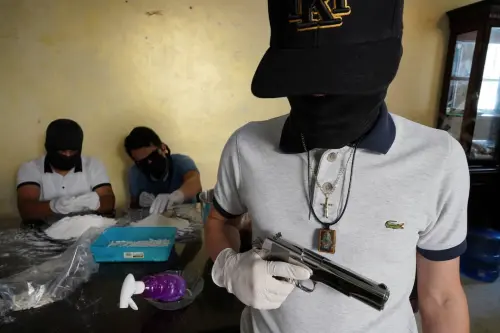In New York on February 26, legal experts expressed concerns over the implications of the U.S. President designating drug cartels as terrorist organizations. The move could increase the risk of criminal prosecutions for American companies operating in Latin America and migrants entering the United States.
The State Department officially labeled the Sinaloa Cartel, Tren de Aragua, and six other criminal groups as part of the government's efforts to combat drug trafficking and illegal migration. Before the formal designation, Attorney General Pam Bondi anticipated that the Justice Department could prosecute individuals providing support to terrorist organizations.
According to six legal experts consulted by Reuters, U.S. companies and individuals aiding individuals crossing the border might face prosecution for supporting terrorist groups under U.S. law. The potential risks of criminal charges also extend to non-U.S. companies with American operations.
Experts pointed to past cases, such as French cement maker Lafarge's guilty plea and significant fines for supporting designated terrorist groups in Syria. The experts emphasized the importance for companies to reassess their associations following the recent designations of cartels as terrorist organizations.
Former federal prosecutor Brendan Quigley highlighted the importance for companies to be cautious about their dealings, while former prosecutor Stephen Reynolds warned that U.S. laws also apply to non-U.S. entities with American connections.
The implications of the designations are significant, especially given the substantial trade volume between the U.S. and Mexico and other countries in the region. Former federal prosecutor Andrew Adams highlighted the potential impact on businesses, given Mexico's status as a major trading partner.
Not only does the risk of criminal prosecution loom, but victims of violence by terrorist-designated groups may also seek civil damages from individuals or entities they believe supported the groups. Carlton Greene, a legal expert, cited a case involving Chiquita Brands International, where a jury ordered the company to pay damages to victims of violence perpetrated by a designated terrorist group.
Moreover, the designation raises concerns about potential prosecutions of migrants who engage with cartels for smuggling or financial support. The designation could lead to harsher penalties, like a 20-year mandatory prison sentence for engaging in narcoterrorism, compared to the 10-year sentence for drug distribution.
In summary, the designation of cartels as terrorist organizations poses legal challenges for businesses, individuals, and migrants, with potential implications for criminal and civil liabilities under U.S. law.
